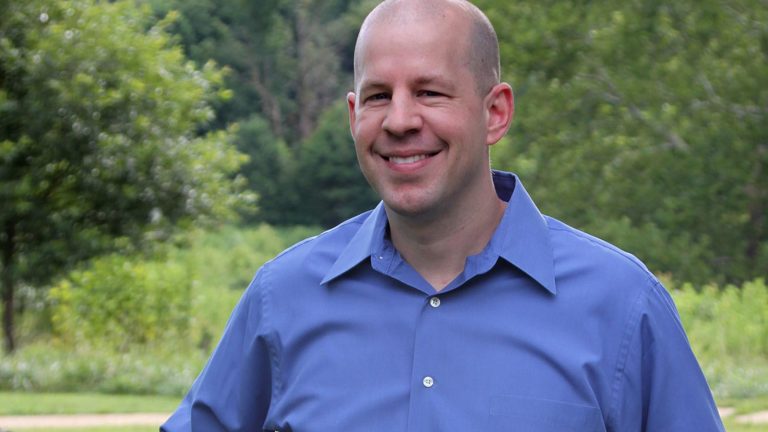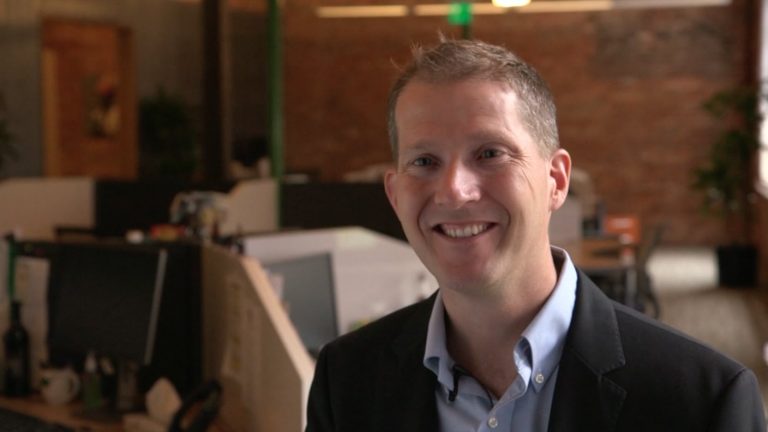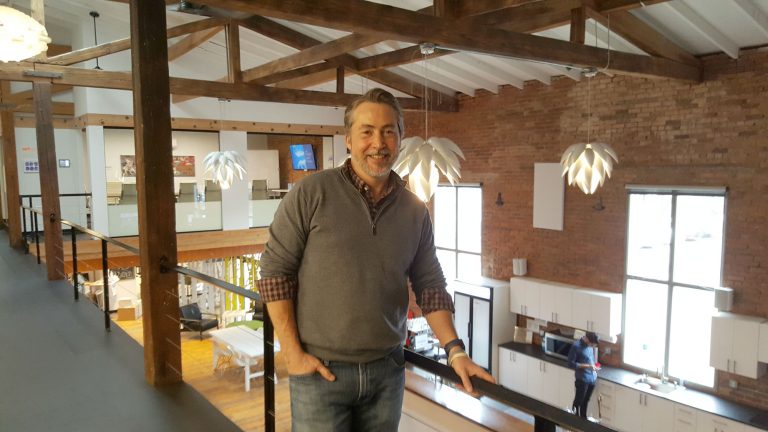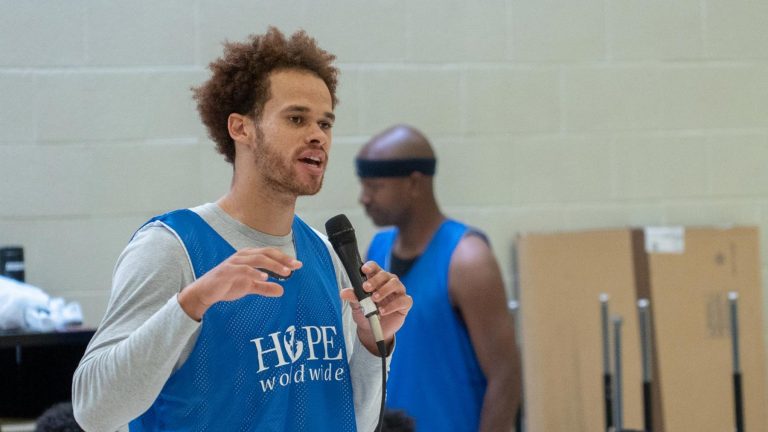Farland Chang, based in Irvine, CA, is executive producer of EastMeetsWest, a National Geographic docuseries. Chang started a company called WorldBizWatch in 2001 after a distinguished career in journalism, including anchor and correspondent for CNN, correspondent for NBC News and reporter for KOMO TV in Seattle. He has a BS from Cornell University and an MS from the Columbia University Graduate School of Journalism.
Q: You had a long and distinguished career as a TV reporter and anchor before creating a business that involves producing and hosting documentaries. What motivated you to start this venture?
 A: My venture today has changed a lot from how it started 20 years ago. When I first started, I thought the stars were aligned. Right time, right place, right people. I was inspired by the entrepreneurs, business leaders and tycoons I had been covering as a business journalist for CNN.
A: My venture today has changed a lot from how it started 20 years ago. When I first started, I thought the stars were aligned. Right time, right place, right people. I was inspired by the entrepreneurs, business leaders and tycoons I had been covering as a business journalist for CNN.
It was during the dotcom boom around 2000 and the start of the digital revolution. And I had the benefit of collaborating with smart and savvy partners. The idea was to create an online global platform bridging brands with journalists. This would provide a win-win service. Journalists would get newsworthy, relevant and raw video content they could easily access, download and repackage. And brands would have a way to leverage their expertise, proactively create their own branded content, then share their own media library to a global audience.
In the end, our rival succeeded and created a great company. You can find it online at www.thenewsmarket.com where its tagline is “smart brands share their stories.” In contrast, while we were the first mover, we failed to raise enough money, move fast enough and adapt. So we failed in our first goal and instead, we morphed into a media production company, one in which we focus on our core expertise of producing content and grow organically.
Q: From the looks of it (tell me if I’m wrong), you went from working for someone else to working for yourself (and a partner). What have you found to be the advantages and disadvantages of being on your own?
A: I had the pleasure of working for traditional media broadcasters for most of my journalism career. Network affiliates for ABC, CBS, NBC, FOX in Seattle, Philadelphia, Hawaii, even Guam. I also enjoyed working as a network correspondent for NBC News and a business news anchor for CNN. And among the highlights:
- Working with great talent, role models and superb colleagues.
- Producing news content for traditional and growing audiences on established platforms.
- Working within structures, serving on proven teams, and contributing to successful formats and formulas.
- Having the security of a guaranteed salary.
As for the pros and cons of being independent?
Pros: If you have the vision to create a unique value proposition, a committed core of dedicated teammates, the passion “to make a dent in the universe,” and the resources to execute your roadmap, then you would love the freedom of being on your own. Of course, most entrepreneurs don’t have all those pieces. But if you have some, that will give you reason to wake up, excited every day, that you are making the most beautiful baby – and producing a great legacy.
Cons: Forget about the predictability of a 9-5 life. Expect to be on-call 24/7. Your venture must be on your mind constantly as you live, breathe, sleep and eat. It’s all consuming. All or nothing. And in the early stages, if you don’t move, nothing moves – no sales, no paycheck, no funding, no gas to power your vehicle.
Forget about the stability of a regular paycheck. You should expect to dig into your savings to bootstrap your startup. You need to keep thinking “slow burn” — how to keep going on as little as possible. You need to keep thinking how to increase revenue and decrease costs. And always look for ways to sell your product, find new customers and seek the path to profitability. Don’t jump in unless and until you have enough savings to sustain you for the long haul. And if you fail to meet your goalposts, then you need a backup plan for cutting your losses.
ABC: Always be closing. Journalists must know how to sell their story ideas to their producers and editors. But on our own we need to be selling our services to our customers. What’s our value? Why is it essential they buy our service? What’s the benefit? Are we better than our rivals? And cheaper? If not, why not and how can we be the best, for less?
We also need to be selling to investors. What’s our unique value proposition? Where’s our growth? When will we be profitable? What is the exit strategy?
conclude, the whole process has been an amazing journey. Sometimes flying high, sometimes crashing. An eye opener. Full of highs and lows. And a test of all one’s muscles. But overall, an experience of a lifetime I wouldn’t trade, and one that has helped me expand from being a journalist and storyteller into a business-minded, versatile entrepreneur and a more complete person.
Q: You started WorldBizWatch 18 years ago — no one stays in business that long without doing one or two things right. What has been the secret to your success?
A: Some factors for success?
- Purpose passion and hunger, grit and perseverance. Focus on your core expertise: ideally as the saying goes, “Do what you love and you won’t work a day in your life.” Salesmanship and customer service.
- Discipline and execution, organic growth by giving clients your good services at good prices and delivering good value.
- Slow burn, profitability. Lowering costs by streamlining production processes and applying technological advances.
- Racing to the top by giving the best for less, not racing to the bottom based on lowest price.
Q: What lessons-learned, advice, etc., can you share with budding entrepreneurs?
A: Repeating what I mentioned earlier: “If you have the vision to create a unique value proposition, a committed core of dedicated teammates, the passion “to make a dent in the universe,” and the resources to execute your roadmap, then you would love the freedom of being on your own. Of course, most entrepreneurs don’t have all those pieces. But if you have some, that will give you reason to wake up, excited every day, that you are making the most beautiful baby – and producing a great legacy.
Compared to a paralyzing corporate structure resistant to change, when you’re on your own, you may now be relatively free as a bird, liberated from the tight controls, structure, politics and inertia. For those who thrive outside the box, and who have the discipline to follow and execute their plan, it’s a dream to be on your own and a nightmare to return to the old structure.”
And finally, I would repeat one more paragraph again right here: “To conclude, the whole process has been an amazing journey. Sometimes flying high, sometimes crashing. An eye opener. Full of highs and lows. And a test of all one’s muscles. But overall, an experience of a lifetime I wouldn’t trade, and one that has helped me expand from being a journalist and storyteller into a business-minded, versatile entrepreneur and a more complete person
